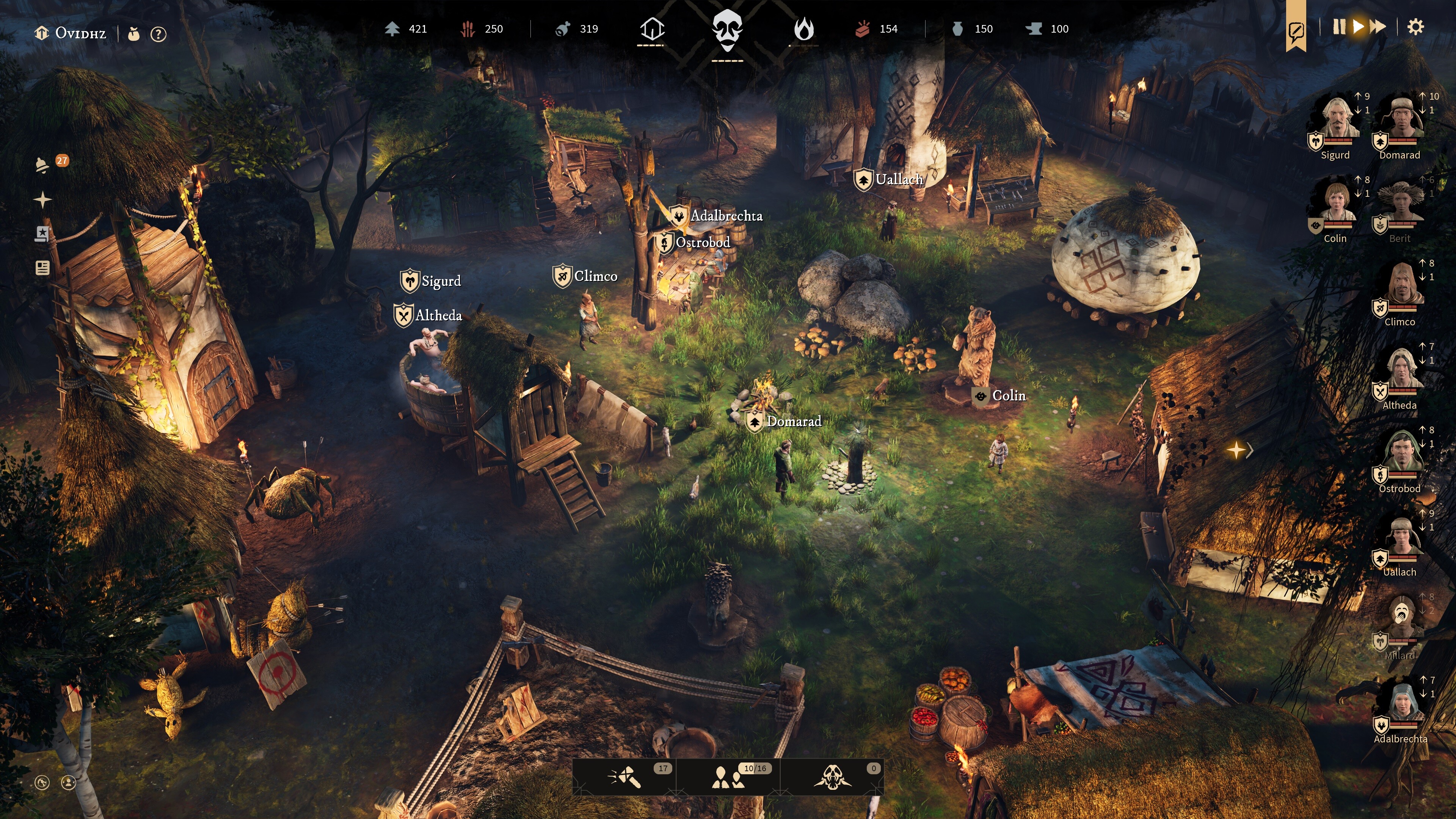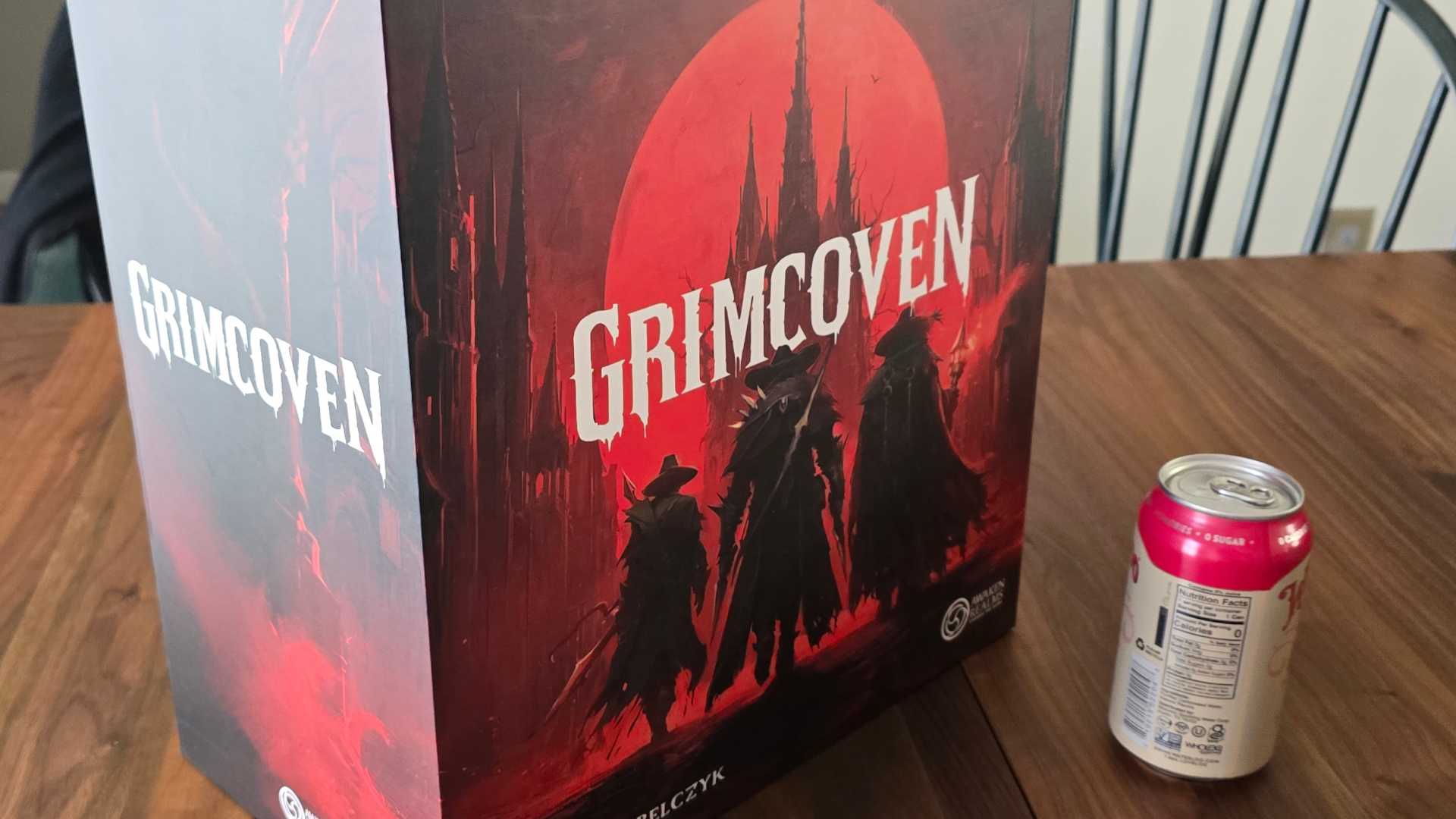GamesRadar+ Verdict
For all the interesting and novel things that Gord brings to the city building genre, it's just not coherent nor determined enough in what it's trying to do to create something with the necessary confidence to compete with the countless options available to genre fans these days. The result is a game with a strong start and a compelling world, but one that cannot build upon those strengths to retain interest over each new settlement and its repetitive gameplay.
Pros
- +
Unique sanity resource
- +
Rich world and deep lore building
- +
Decent survival challenge
Cons
- -
A lot of repetition with little variety
- -
City building and resource management is its weakest aspect
Why you can trust GamesRadar+
When did it happen that city building games just kind of stopped being niche? New city builder Gord might not have had a chance in years gone by, when all genre fans had SimCity and that was yer lot. But now? Now you can terraform Mars, survive a Steampunk ice age, restore a planet's ecosystem, or build thriving villages, towns, and cities in a plethora of settings, historical timelines, potential futures, or fantastical themes. There's almost too much choice these days when considering the best city building games, and Gord constructs its own little homely plot among the many on-going developments.
Release date: 18 August, 2023
Platform(s): PC
Developer: Covenant.dev
Publisher: Team17
Gord's slice of this bulging pie comes from the survival subgenre of city builders, which is to say it is less about expansion and growth of your settlement and more about ensuring everyone is kept alive against both external threats and the ever persistent demands of Maslow's hierarchy of needs. It's squarely in the dark fantasy stylings, and conjures up a broad, deep, and rich world lore to satisfy the initial curiosity. There's an uncanny feeling of Westeros that Gord manages to siphon, and with this metaphor in mind you can think of the gameplay and setting as focusing solely on the realm Beyond the Wall.
Creeping death
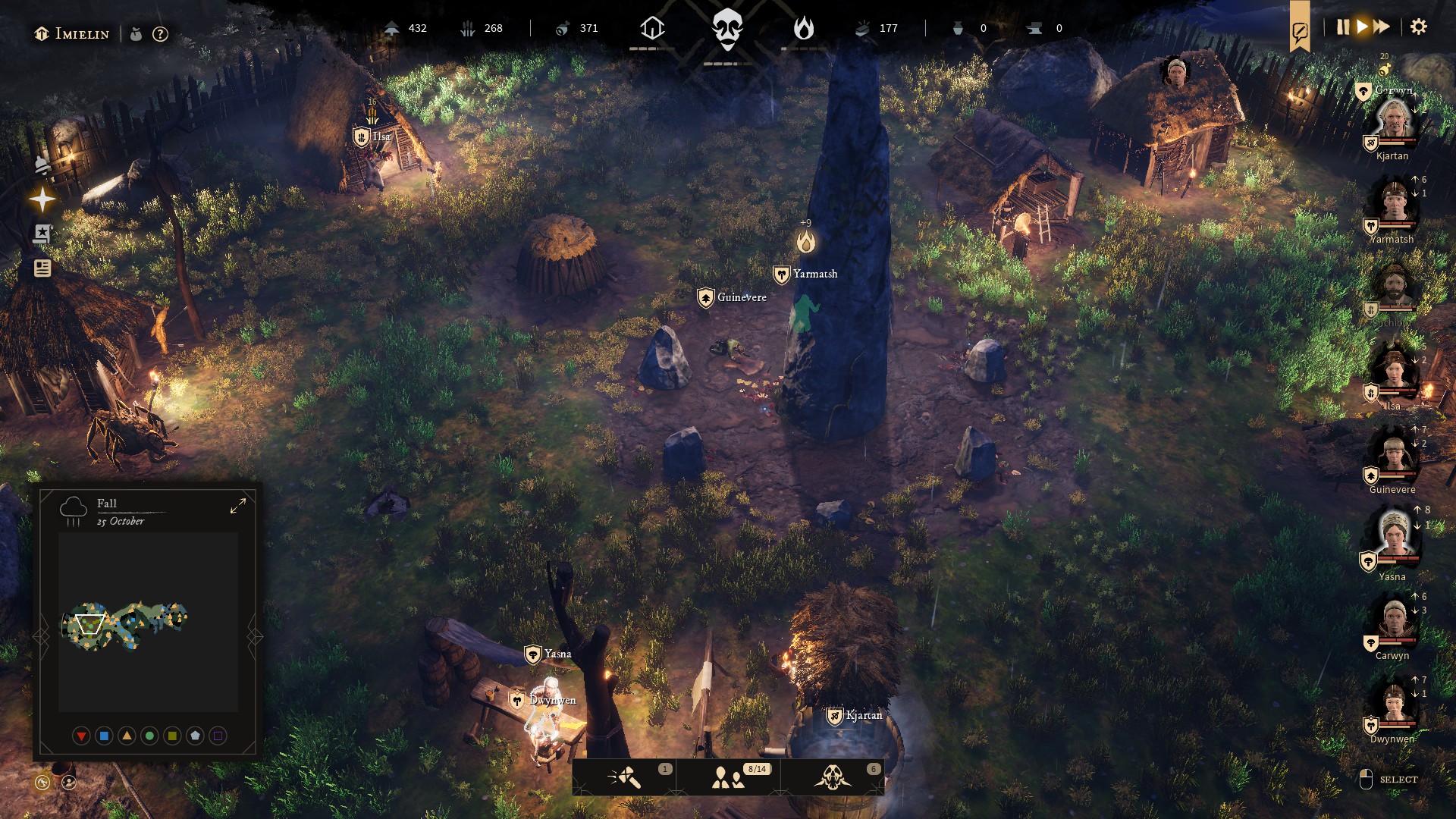
Instead of White Walkers, however, you've got a host of dark and foreboding beasts of shadow that lurk not only in the forests outside the wooden walls of your settlement, but also within the minds of your habitats should they need to step outside of the torchlight for resources (and invariably they will). These titular 'gords' (that's the term used for a settlement) are literal beacons in the dark, and within the safety of a gord you'll find that your citizens are mostly content so long as they're not left idle.
Gord doesn't mess about when it comes to its vibe thanks to a blend of visual, aural, and written flavor that deepens its persistent oppression. Trees permanently rattle in an endless wind, the suitably subtle dark soundtrack keeps you on edge, all the while short text dialogue will pop-up from your citizens as they respond wearily to the world and your actions. It's all very grotty, and that's meant fully as a compliment.
All of this ties into the core mechanic of Gord and its city building: sanity. It's a resource that needs to be managed in lieu of the likes of happiness. And since spending too long outside of a gord's walls will cause an inhabitant's sanity levels to entropy, and risk them abandoning your command completely, Gord becomes a game about keeping an ever watchful eye on the relevant stats and changing details even while you might be distracted with something else in a level.
Gord chooses to opt for a smaller, more micromanagement scale of city building, with each of your settlement's inhabitants directly selectable from the right-side of the screen. In the late game you're looking at 10s of people in your settlement, not 100s or even 1000s. There isn't much abstraction here, and you'll need to be on top of everything to ensure your gord has what it needs to grow.
Gord is where the Heart is
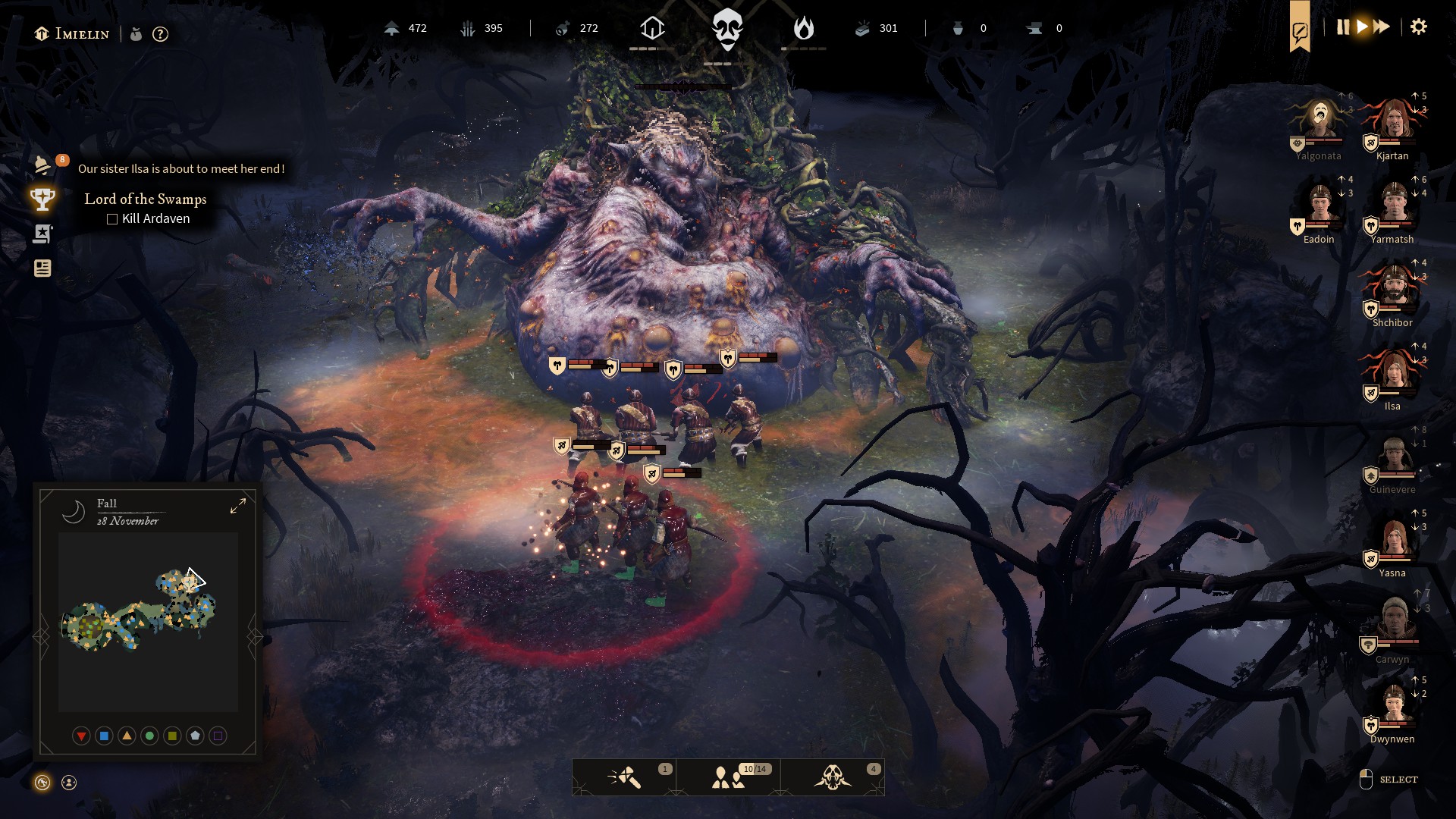
The added layer of each citizen having their own age, consumption rates and attack damage, positive and negative traits, and even equipable items for further min-maxing brings with it some bonus context, though thankfully it never really becomes so integral to the people management side of things that it becomes a burden.
Weekly digests, tales from the communities you love, and more
To say this adds some complexity is a bit of a reach, but it does create an experience where you'll find you are assigning certain roles to specific people since it'll fit them better. Before long you'll remember the randomly generated, overtly fantastical names (though you can name them whatever you like) not by their personality traits, their profile image, or their backstories, but rather what you expect them to be doing at any given moment.
This is important because you're never at a point with Gord where you're in an abundance of workers. In fact, each level requires you to choose who your starting group of survivors are, and this means leaving behind many that were born or rescued in the previous level simply because they don't have the comparable experience in any professions to those that came before.
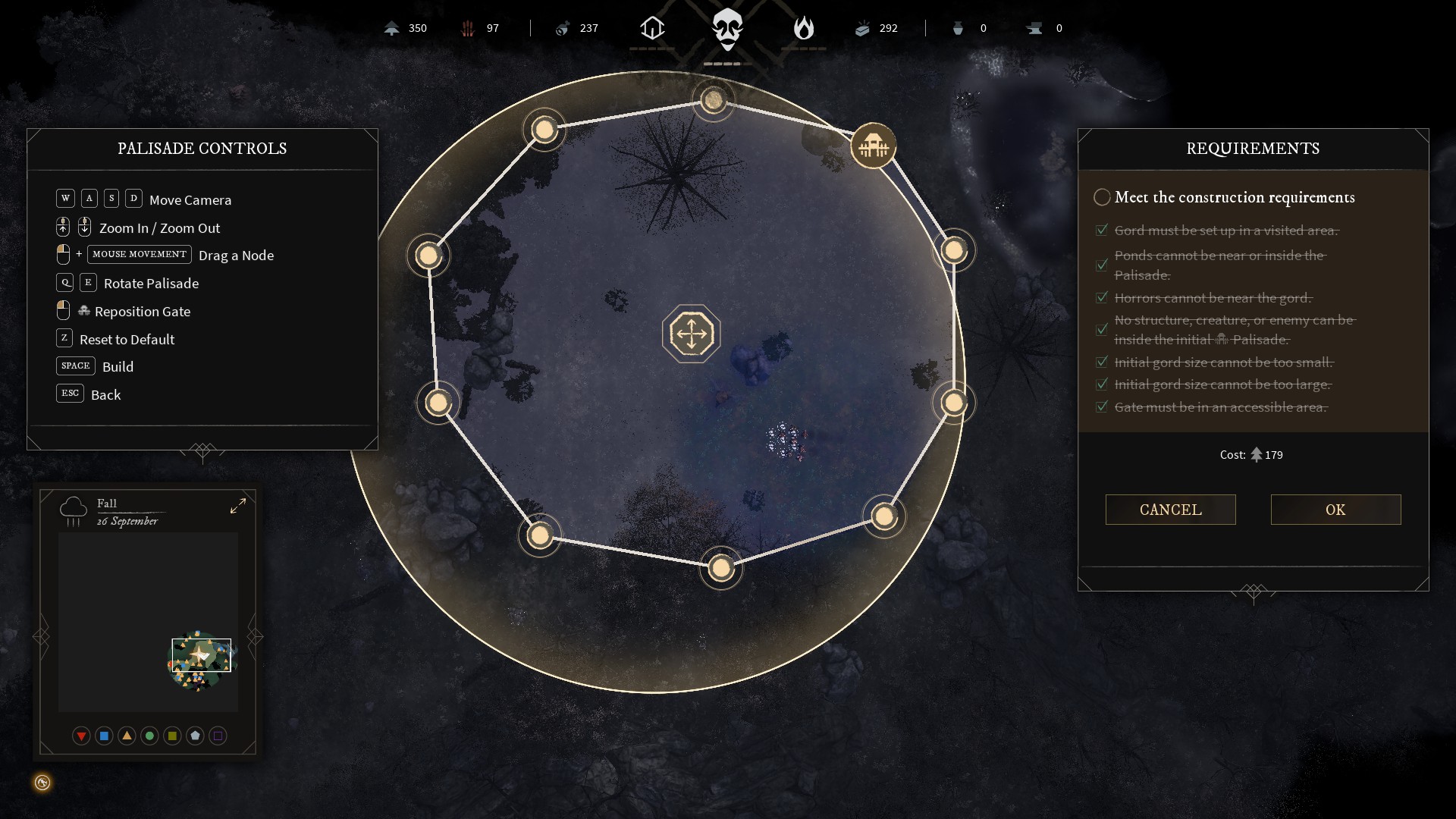
"It's all very grotty, and that's meant fully as a compliment."
The problem with this, as it is with the gords themselves, is that it all ends up feeling a little futile. That limitation on workers mechanically makes sense, since it does require each survivor to swap out roles regularly to fit the current needs of the settlement – at least until new citizens are born and grow up or are rescued from the darkened forest. But having to redo the same work of waiting for babies to become working adults or to hunt for caged citizens in each level not only feels choresome in the end, but undoes the thematic narrative of working together to survive in this harsh landscape since you're just ditching all those you worked hard to add to your society.
Each level begins with setting up a new base to work from, and despite all the curious novelty of perfectly positioning the walls and neatly rotating the structures, it never really feels like you're doing anything different each time. City building games are almost always about watching your settlement expand and evolve over time, but Gord severs that completely and there isn't enough depth, complexity, or variety to anything that it decides to replace it with. You'll build the same handful of buildings in the same order with nary a care about where they go or why you're building them.
And that's a large part of where the dissonance with Gord comes from. A lot of effort has gone into the worldbuilding of this grim fantasy and the characters talk of how utterly horrible it really is to live in the wilds as they do. But the gameplay doesn't really back that up. Initially this issue appears in the form of tongue-in-cheek questions you might find yourself asking: if food is so scarce and a challenge to acquire, how is it that a meadery seems to have unlimited supplies of sanity-restoring drinkypoos?
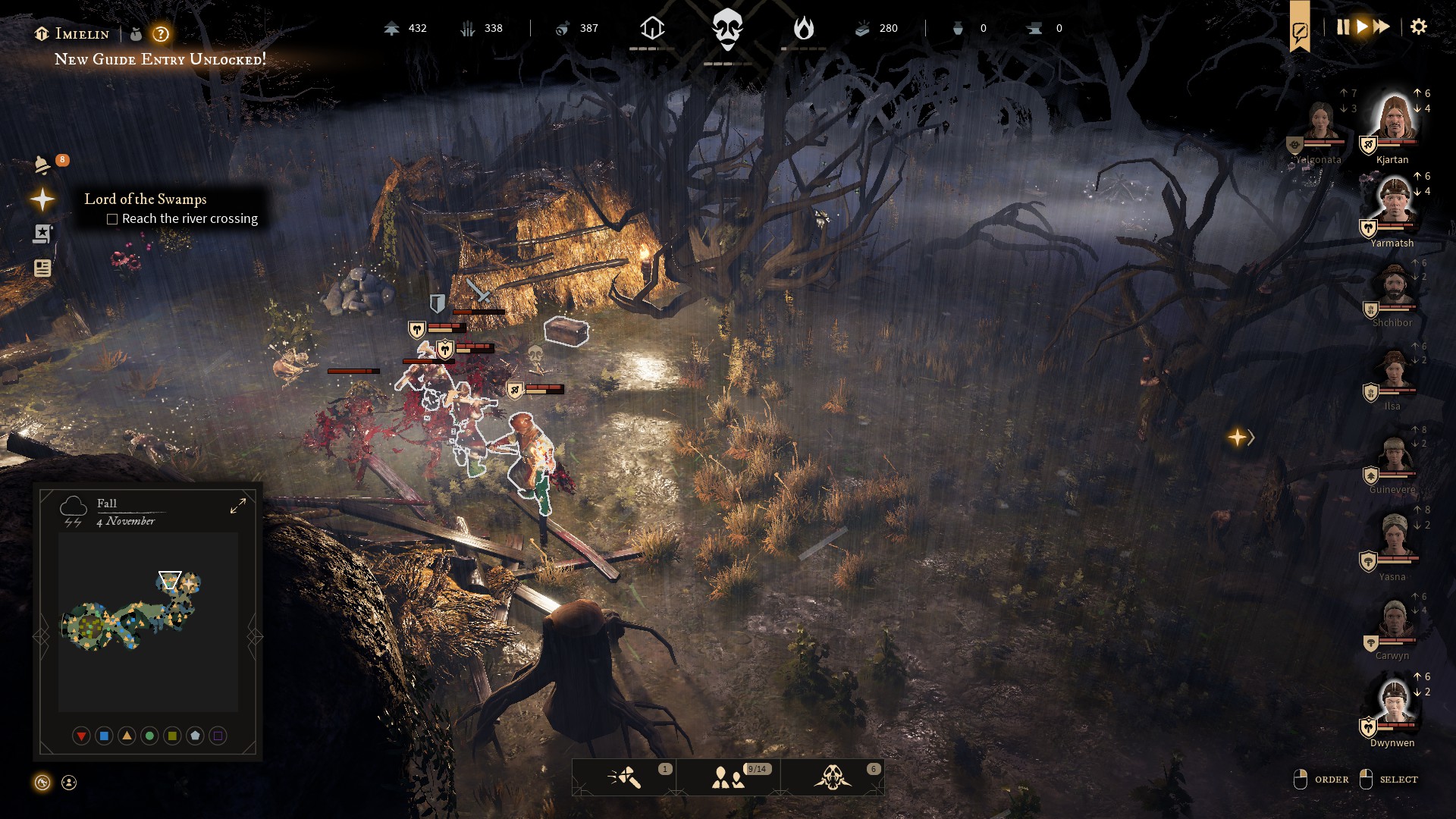
But in time the facade of this fearful external world slips away as you fall into a repeatable routine that doesn't really gel with the vibe that Gord is trying to sell. It becomes more challenging as the supplies become rarer or further from your starting location in the level, and the horrific beasts scale in the magnitude of their threat, but since none of this really ties to the core mechanic of city building and managing sanity, everything just ends up feeling shallow and repetitive.
One aspect that does offer intrigue is with its Horrors, as they're called. These can be thought of as 'bosses' for some of the levels, unique monsters that can block your progress unless you make a moral choice. There are a number of randomly generated moral events that pop up from time to time, but the impact of these are usually minimal – positive or negative.
The Horrors are a little more intricate though, since they do require you to make a weighted choice (such as sacrificing the last born child) or defeat the Horror in admittedly tricky combat. It's not necessarily an easy decision to make since the battles can easily lead to the death of some of your most experienced people if you're not careful, but it would be curious to see just how many players choose the easy immoral option in lieu of just gathering a bunch of military units and sticking these grotesque creatures with as many sharp bits of metal as possible.
Gord was reviewed on PC, with a code provided by the publisher.
More info
| Genre | Strategy |
